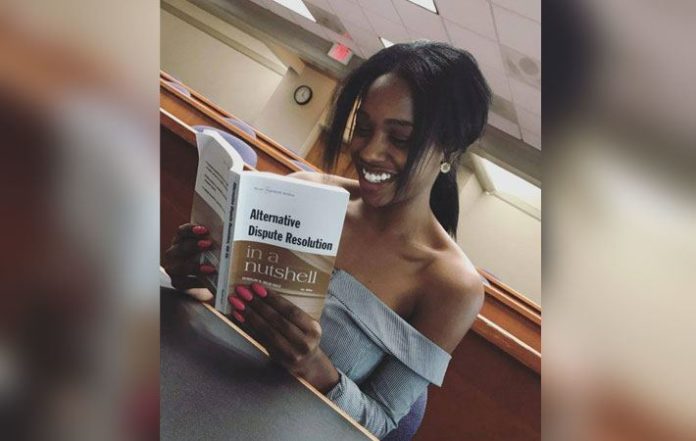This week, Mercer Law students completed their first course of the year during Intro Week, which takes place the week following Orientation, but before classes start. This is an intensive one-week course aimed to sharpen their legal skills before the fall semester starts.
Incoming first-year students are welcomed with an Introduction to Law course. Five experienced professors work with the students over eight class meetings to introduce the tools of legal analysis, such as critical reading, case synthesis, and statutory analysis. The course also showcases the dynamic nature of the law school classroom. Students construct case briefs, explore note-taking strategies and engage in lively discussions throughout the week. Introduction to Law is coordinated by Professor Karen Sneddon, who explains that the course is meant to help prepare each student for success in his or her first semester of law school.
Second-year students complete a simulation-based course called Introduction to Client Counseling. Students watch client counseling demonstrations, take part in a variety of client counseling simulations and build skills through self-reflection and constructive critique. The course culminates in a final exam during which teams of students participate in a simulated counseling session with a local actor portraying the client.
Professor Sarah Gerwig-Moore describes the need for such an experience, stating, “Clients are at the heart of our work, and I love seeing students confront the barriers to open and productive client counseling and conversation. This skill is central to what almost all lawyers do, and I'm proud to teach in a law school environment where it is a major focus.”
Third-year students complete a course in alternative dispute resolution (ADR), which exposes them to various forms of dispute resolution techniques, including negotiation, mediation and arbitration as students enter the final year of their legal education and begin to transition into practice. The course includes a plenary session that exposes students to faculty members and lawyers with extensive practical experience in negotiation, arbitration or mediation and who illustrate integrating dispute resolution skills into practice. Then during the week, students break out into small sections comprised of topical lectures, class discussions and work assignments, with assigned reading and projects in the evening. After the initial exposure to experts in the field and classroom instruction, students participate in a significant number of role-play and simulation exercises designed to integrate the daily reading materials and skills with practical, first-hand applications. The simulations place students in the roles of mediators, arbitrators, or negotiators, as well as the clients they serve, allowing students to become sensitive to the unique issues involved in each role.










